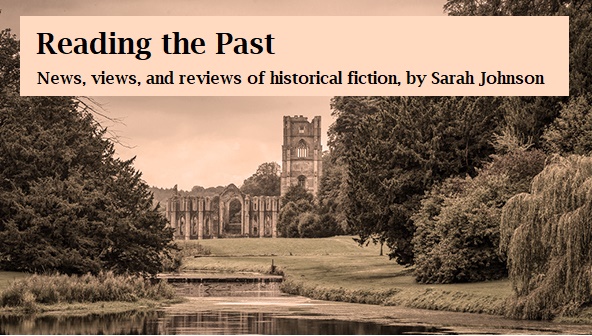 In her third work of fiction, both a richly detailed historical novel and a dark morality tale, Elena Maria Vidal takes readers deep into the heart of the 13th-century French Pyrenees – a war-torn land whose verdant mountains conceal adherents of the mysterious Cathar religion.
In her third work of fiction, both a richly detailed historical novel and a dark morality tale, Elena Maria Vidal takes readers deep into the heart of the 13th-century French Pyrenees – a war-torn land whose verdant mountains conceal adherents of the mysterious Cathar religion.The year is 1227. After her father and brother are killed fighting alongside the French king against the Cathars, seventeen-year-old heiress Raphaëlle de Miramande realizes she needs a male protector. As appropriate for a woman in her position, she arranges for her betrothal to the son of her uncle, the Baron de Marcadeau. With her small party and an accompanying group of pilgrims, she makes her way from her home in Auvergne to her uncle’s chateau, taking a treacherous mountain route overrun by dispossessed Cathar noblemen turned brigands. Upon arrival, she receives a peculiar welcome, and discrepancies in the family’s behavior put her on guard. Curiously, she finds no outward trappings of Catholicism, the family doesn’t celebrate mass, and her uncle’s wife, Lady Esclarmonde, declares Raphaëlle’s brightly colored clothing too ornate to be proper.
Raphaëlle soon comes to realize that the castle is full of Cathar sympathizers, and that Esclarmonde is a Cathar Perfecta, a member of their spiritual elite. An ascetic and vegetarian who believes too many children are born in the world, Esclarmonde tells Raphaëlle to expect a celibate marriage. Seeking escape from her betrothal to a heretic, Raphaëlle writes in desperation to Sir Jacques d’Orly, an officer of the king’s seneschal who later seeks to marry Raphaëlle himself. However, Raphaëlle’s uncle and cousin refuse to give up her dowry. Raphaëlle also finds her heart torn between her loyalty to Jacques and her overwhelming love for Martin, the flirtatious Knight Hospitaller and troubadour who had brought her safely to her uncle’s chateau. Jacques offers her stability, but Martin presents a romantic image that’s difficult for her to resist.
Denounced as a heresy by the Roman church, which saw it as a major threat, Catharism was a dualistic sect believing in the purity of the spirit and the sinfulness of the material world. Raphaëlle’s travels back and forth through the Pyrenees showcase the interplay of light and shadow against the beauty of the mountains, a symbol of the theological troubles raging in the land. These lyrically written passages, a highlight of the book, will likely inspire thoughts of travel to southern France. Raphaëlle, a fervent Catholic, can’t understand how the Cathars would disdain these beautiful sights because of their earthly origins, but even she is initially taken in by the sincerity of their beliefs and their surface similarity to her own.
As Vidal notes in her introduction, in medieval times people's faith ran strong; religion wasn’t a subject of indifference. This is something that many novels about the period downplay or omit. The Night’s Dark Shade, told as it is from a devout young Catholic’s viewpoint, depicts the Cathar faith as Catholics of the time would have seen it. Several Cathar characters cross the line into madness; Esclarmonde in particular embodies everything malevolent that was believed about them. Other members of Raphaëlle’s circle make sudden emotional about-faces toward the end. More nuanced characterizations in these cases would have strengthened the storyline, but Raphaëlle’s struggles for clarity with her own faith and love life are realistically depicted and heartfelt.
Julianne Douglas has also posted a review at Writing the Renaissance.
The Night’s Dark Shade was published in November 2009 by Mayapple Press ($22.50, trade paperback, 978-0-557-15924-6). Elena Maria Vidal blogs at http://teaattrianon.blogspot.com/.










Thank you very much for the review, Sarah! It is truly an honor for me and my new book to be mentioned on your blog!
ReplyDelete